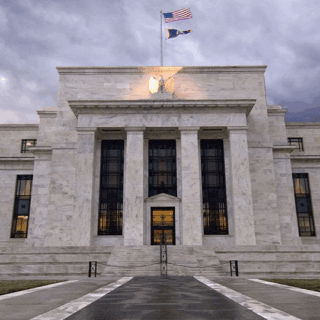
The recent elections to the European Parliament showed that both far right and right-wing and conservative parties made big gains.
The 720 members of the parliament generally belong to European-wide parties consisting of national parties grouped along ideological lines. Media have focused on the gains made by the far-right Identity and Democracy party and the European Conservatives and Reformists. However, the Christian Democratic European People’s Party, left-wing Progressive Alliance of Socialists and Democrats, and liberal Renew Europe still hold the majority in the European Parliament.[1]
French President immediately called a snap national parliamentary election in the next three weeks because the far-right National Rally (Rassemblement National, formerly the Front National) made huge gains in the European Parliament elections. Media emphasized that the shift to the right was caused by mass voter anger with migration and the war in Ukraine.
Any gains by rightist and far-right in European and European Parliament immediately trigger fears that fascism is returning to Europe. However, the specter of fascism has haunted Europe for decades now and we need to look at the rise of the far right in Europe since the 1970s in a more reasoned way.
In an interview published on September 9, 2022, editor Yuri Chekalin asked me “Is there a danger of fascism today?” My answer was “No. Fascism, National Socialism and related ideologies emerged in very different conditions in the 1920s and 1930s. These ideologies were discredited by the enormity of Nazi war crimes. There are groups considered Neo-Nazi and Neo-Fascist today but they have had to adapt themselves to changing conditions especially since many people, especially in Europe, have painful memories about Nazism and Fascism and the war crimes committed by Nazis and Fascists.>>. I still stand by my answer.
However, there is a far-right danger in Europe. As I noted “The real danger not just in Europe but elsewhere in the world are mass far-right populist parties and movements. They profess their hatreds of the elites of big government, big business and big labor unions and claim that they speak for the people. Far-right populism appeals to angry and disenchanted people who have lost faith in traditional politics parties from right to left. It often attracts people who would have belonged to Nazi, Fascist and related movements in the past”. [2]
Mass far-right populist parties make up only one part of the far right in Europe. The far-right camp includes the mass populist parties and also Catholic, Protestant, and Orthodox traditionalists, Neo-Nazis, Neo-Fascists, and similar groupings, European identity movements, white supremacists, anti-Muslim and anti-immigrant organizations, elitist schools of thought such as La Nouvelle Droit (New Right) in France, members of subcultures of neopagans, occultists, soccer fans, motorcycle gangs, fans of certain types of rock music, elements, and different amorphous protest movements. Of course, there is considerable intersection between the far-right and rightist and conservative parties and movements.
We first must define populism. German constitutional lawyer Wolfram Nordsieck on his site Parties and Elections in Europe notes that “Right-wing populist parties are protest parties that appeal to the common people. They appeared first in the early 1970s. These parties combine national stances with an anti-elitist rhetoric and a radical critique of the political institutions. They usually prefer law-and-order and anti-immigration polices. [3]
Although many people associate populism with the right or far-right, there are also centrist (liberal) and leftist variations of populism in European countries. As Nordsieck notes “Left-wing populist parties are protest parties that appeal to the common people. This parties combine left-wing policies with an anti-elitist rhetoric and a radical critique of the political institutions. They usually oppose the globalisation and prefer direct democracy, economic democracy and social justice.” [4] France has populist parties spanning the political spectrum. They include the far-right National Rally, the centrist The Republic Onwards (La France en Marche), led by President Emmanuel Macron, and the left-wing Indomitable France (La France Insoumise) [5]
As Nordsieck notes, populist parties are parties that appeal to the common people. Some people say that populism is a political ideology while others say it is only a political style. The root of the word populism is the Latin word populis—people. However, every political ideology proclaims that it represents the true interests of the people. Parties based on different ideologies make the same claims.
According to the Oxford English Dictionary, populism represents a policy or principles of different political parties striving to represent the interests of simple or ordinary people. [6] Populism is often more associated with a political style than with a definite ideology. It is associated with social demagogy under the mask of defending the “common man” or “little guy” against elite groups, governments, traditional parties, big business, and other institutions. Populism is also associated with ignorance, xenophobia (hatred of foreigners) and anti-intellectualism. Many opponents of populist parties and the mass media regard far-right populist parties as a variation of Fascism, National Socialism, and related ideologies. [7, c. 321]
Dutch political scientist Cas Mudde defines populism as an ideology proposing that society is divided into two groupings hostile to each other. The hostile groups are the “pure people” and the “corrupt elites” Populism proclaims that politics must express the general will of the people. [8, p. 543]
Not surprisingly, this division of society into categories of people and elites reflects a dualistic or eschatological concept of realities. Eschatology refers to the doctrine of the coming end of the old world and the coming of a new age. Religious and political variations of eschatology often include dualism—a sense that people are engaged in a cosmic struggle between good and evil forces that has lasted for decades or centuries.
However, the far-right does not hold the monopoly on dividing society into different categories. This tendency is used by populist, rightist, leftist, nationalist and many other parties and movements across the spectrum. All these movements used eschatological themes to explain the causes of the present catastrophic situation and propose a way out of the crisis.
Let’s look more at what gives far-right populist parties such a mass appeal.
Sources Used
- European Union. Parties and Elections in Europe. http://www.parties-and-elections.eu/eu.html
- Rocchi, Tony. Russian Terrorism Yesterday and Today https://commentathor.com/canadian-with-italian-heart-and-russian-soul-terrorism-yesterday-and-today/
- Nordsieck, Wolfram. Right Wing Populism. Parties and Elections in Europe
http://www.parties-and-elections.eu/content.html
- Left Wing Populism http://www.parties-and-elections.eu/content.html
- Parties and Elections in Europe http://www.parties-and-elections.eu/france.html
- Oxford English Dictionary. 3rd ed. 2011. Electronic version.
- Рокки, Тони. Российское черносотенство и его место в прошлом и настоящем европейских популистских партий и движений: Опыт по компаративистике (The Russian Black Hundreds Movement and its Place in the Past and Present of European Populist Parties: A Comparative Study) // Тетради по консерватизму. № 1 2020, сс. 316-334.
- Mudde, Cas. The Populist Zeitgeist. Government and Opposition. 2004. Vol. 39. № 4 (Autumn). С. 541–563.





